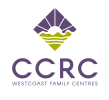Westcoast Child Care Resource Centre
Our Values
Quality – We believe accessible, affordable, inclusive, quality early care and learning programs are at the heart of community and every family is entitled to access.
Diversity – We embrace the diversity of our communities, promote anti- bias goals and strive to meet the needs of the people and organizations we serve.
Learning – We promote professionalism through advocacy, research, education and best practices and as a learning organization are dedicated to excellence, capacity building, flexibility and creative change.
Their Future, Our Mission
Our Vision
WCCRC Administration & Management for Child Care Knowledge Base
The WCCRC Knowledge Base is a comprehensive online information database for ECE leaders, with detailed guidance on all areas of child care leadership.
Formerly known as the Westcoast INFORM Guide, the WCCRC Knowledge Base has been completely revised to reflect current practices and learnings in inclusiveness, Truth & Reconciliation, the BC Early Learning Framework, and inquiry-based approaches. A valuable tool for childcare professionals, it includes comprehensive lists of online resources, as well as tools and forms you can use in your own practice.
The Knowledge Base is now available at no cost to all EYPD Hub members.




